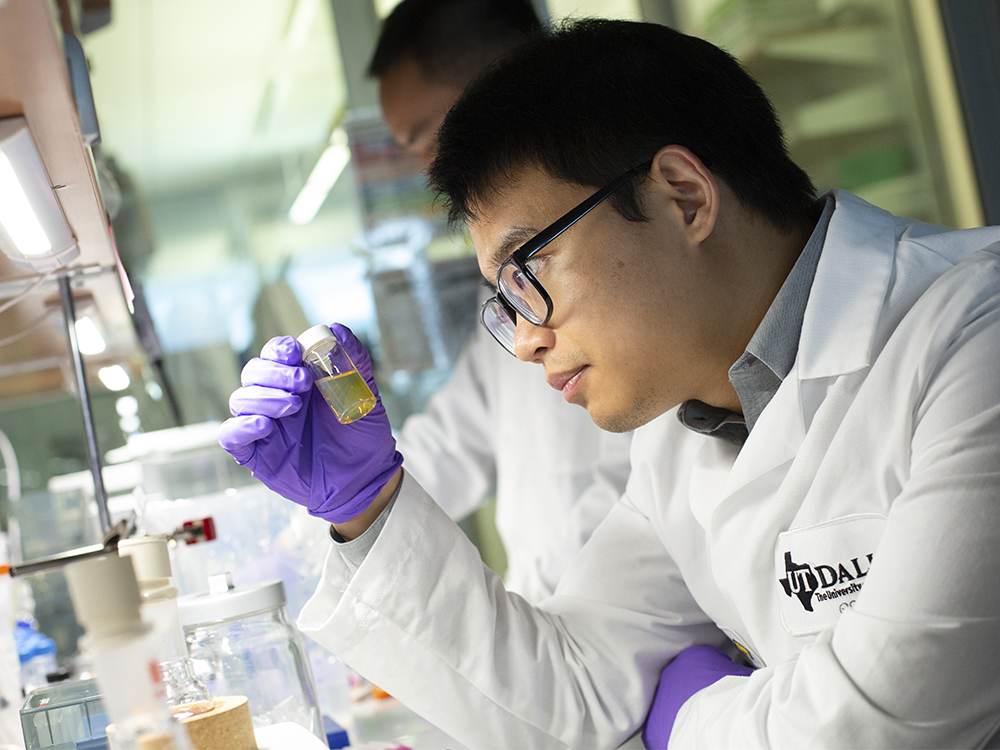$2.5M NIH Grant Bolsters Research Into Better Tests for Viruses
05.11.2020
 Dr. Haihang Ye, research associate in mechanical engineering at UT Dallas, synthesizes nanoparticles that will be used in a new infectious disease testing method that he and fellow researchers are developing.
Dr. Haihang Ye, research associate in mechanical engineering at UT Dallas, synthesizes nanoparticles that will be used in a new infectious disease testing method that he and fellow researchers are developing.
UT Dallas research to develop a fast, simple and accurate test for viruses such as the flu, respiratory syncytial virus (RSV) and, possibly, the COVID-19 virus just got a boost from a $2.5 million National Institutes of Health (NIH) grant.
The grant, spread over five years, will support efforts to advance a novel infectious disease diagnostic approach, develop prototypes and evaluate the method using clinical specimens, said Dr. Zhenpeng Qin, principal investigator and assistant professor of mechanical engineering in the Erik Jonsson School of Engineering and Computer Science.
The goal is to develop a more accurate test that could be done while a patient is in the doctor’s office, although the work is several steps from that point.
“Our next step is to make the assay as simple as possible, so we can have technicians perform the test in the clinical lab in hospitals for research validation,” Qin said.
Existing rapid flu diagnostic testing, for example, can miss influenza in 30% to 50% of cases, according to the Centers for Disease Control and Prevention. For a more accurate diagnosis, samples must be sent to a lab, which can take days. The test Qin is developing could reduce health care costs by eliminating the need for expensive lab tests, he said.
The method uses gold nanoparticles, which attach to antibody molecules that can recognize and bind with protein molecules found on the surfaces of viruses. Researchers apply short laser pulses to activate the nanoparticles to generate nanoscale bubbles, or nanobubbles. An accumulation of nanobubbles signals the presence of a virus. Qin’s group is not working with the live novel coronavirus, only with viral genes, proteins and antibodies. Qin has previously obtained patient samples for his research on respiratory syncytial virus and influenza.
The NIH grant (1R01AI151374) is focused on RSV, but Qin said the diagnostic method can be applied to detect other viruses. His work is also supported by a recent $293,000 grant from the Congressionally Directed Medical Research Programs.
–Kim Horner



